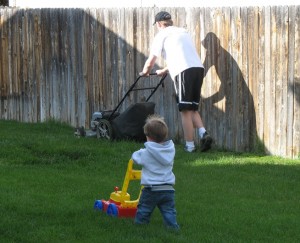Respect is one of the virtues that every culture in the world, in families, communities, countries all agree is essential to raising the trust and peace in our relationships. Each of those cultures may have a different way of demonstrating respect, just as they may have different ways of recognizing a Higher Source, celebrating families, or rituals. So how do we react when faced with an individual, family, community or country that is different than our own?
In our own family, the words, comments, and thoughts we express guide our children to develop their beliefs about those that are different than themselves. When asked about the differences in other cultures, how do we respond to them? What assumptions do we lead our children to with our attitude about those who are different?
One thought to help each family guide their family towards peaceful relationships is to look for what similarities exist in the cultures that are different than ours. Seeing similarities helps us to understand the humanity in all. Families around the world all want their children to be safe, healthy, successful and happy. What that means or what it looks like in each culture will undoubtedly be different, and that is a teaching moment as we use empathy in our discussions.
In a world that seems to be getting smaller and increasingly interdependent, we each have a responsibility to guide those that we lead or influence to seeing those that are different from ourselves as humans with needs, feelings, hopes and desires that at their foundation are more similar to our own than they are different. Without respect for each other expressed with kindness and tact, caring and flexibility we will find ourselves lost of our dignity and unable to unite under the highest virtue of all, love.
Bringing out the best in our children and ourselves is our responsibility begins with seeing the best in our children. Name the virtues that you see in your children and acknowledge them for them for their goodness. Notice how they react when you know and name their respect, determination, cooperation or one of the other 100 virtues listed. Get your list by clicking here. https://goo.gl/7wid8q

